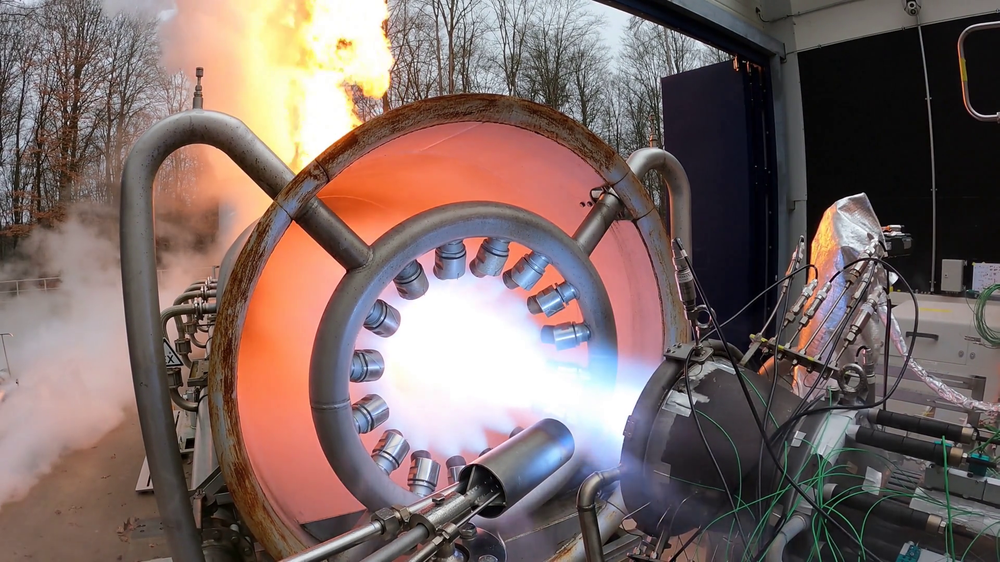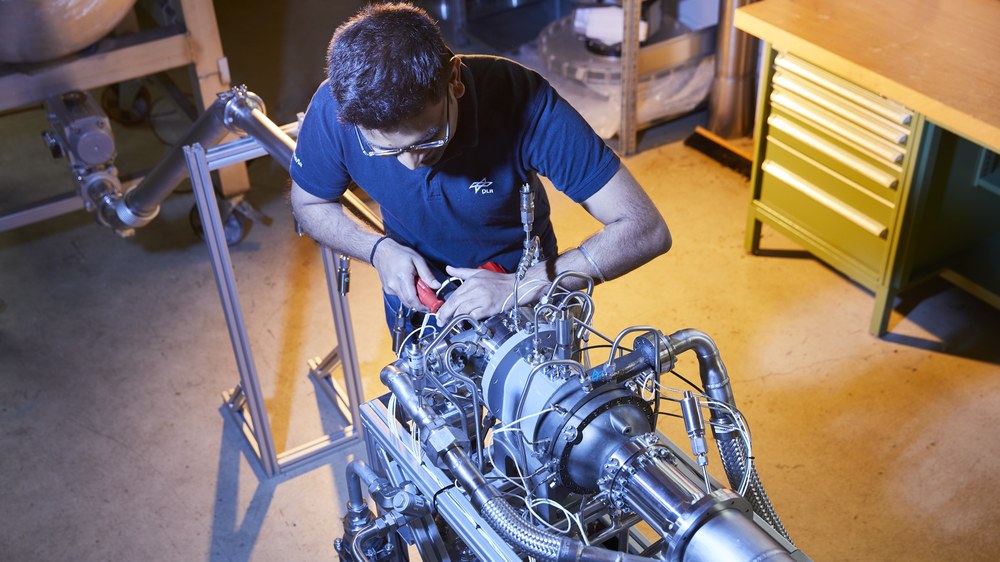LUMEN is ready for industrial innovations in spaceflight


- DLR team has successfully tested their LUMEN demonstrator for the first time on the European Research and Technology Test Bench P8.3 in Lampoldshausen.
- The demonstrator engine enables the validation of technologies that can only be tested in a complete rocket engine.
- In future, LUMEN will be available as a high-performance research platform for internal and external interested parties, thus opening up far-reaching international application possibilities.
- Focus: Spaceflight, technology development, innovation
A rocket engine consists of many individual components that are subject to enormous stresses. To ensure that what belongs together works together during use, it is not enough to develop and test the individual components. Rather, it requires an understanding of the overall interaction of the components. This is the goal of the Liquid Upper Stage Demonstrator Engine (LUMEN) project at the German Aerospace Center (Deutsches Zentrum für Luft- und Raumfahrt; DLR). The DLR team has now successfully commissioned the LUMEN demonstrator, which was developed in-house. LUMEN is a pumped liquid oxygen (LOX) and methane engine; it was hot fired on the European Research and Technology Test Bench P8.3 at the DLR site in Lampoldshausen. "LUMEN enables us to validate technologies that can only be tested in a complete rocket engine. This is unique in Europe and not only strengthens our research expertise, but also opens up far-reaching application possibilities for industrial companies and start-ups," explains Project Manager Tobias Traudt from the DLR Institute of Space Propulsion.

Video: DLR researchers successfully test the interaction of individual components of the LUMEN demonstrator
Your consent to the storage of data ('cookies') is required for the playback of this video on Quickchannel.com. You can view and change your current data storage settings at any time under privacy.
Successful firing of the complete LUMEN demonstrator
The tests of the LUMEN demonstrator are an important milestone in the wide-ranging development project. The focus is on the interaction of all components of a rocket engine – from the combustion chamber to the turbopumps and valves. In addition to the combustion chamber, turbopumps are among the most important components. They generate the necessary pressure to force the propellants into the injection head and thence into the combustion chamber. "With the LUMEN demonstrator, we can now investigate the interaction of individual engine components very precisely, quickly and cost-effectively," says Tobias Traudt, summarising the successes of the project. In addition, as a test system, LUMEN will also offer interested parties from research institutions and the aerospace industry the opportunity to test components or technologies in a real environment for rocket engines in order to achieve a rapid transfer to industrial applications.
Application-oriented research platform
With the new LUMEN research setup, DLR’s comprehensive development expertise will be pooled even more effectively across the entire engine cycle in the future. The design of the demonstrator is optimised for use on the test stand. The measurement technologies for the individual components are therefore easily accessible and easy to use. When the engine is firing, the researchers can determine data such as the temperature in the combustion chamber or the ignition behaviour. The demonstrator provides a much more detailed insight into the operating behaviour than is possible with real rocket engines. In addition, DLR researchers are investigating methods for AI-based engine control and condition monitoring of the engine, referred to as health monitoring. This will enable conclusions to be drawn about the service life of the individual demonstrator components, such as the thrust chamber, turbopumps and other parts. These are necessary development steps in the move to towards reusable rocket engines.
